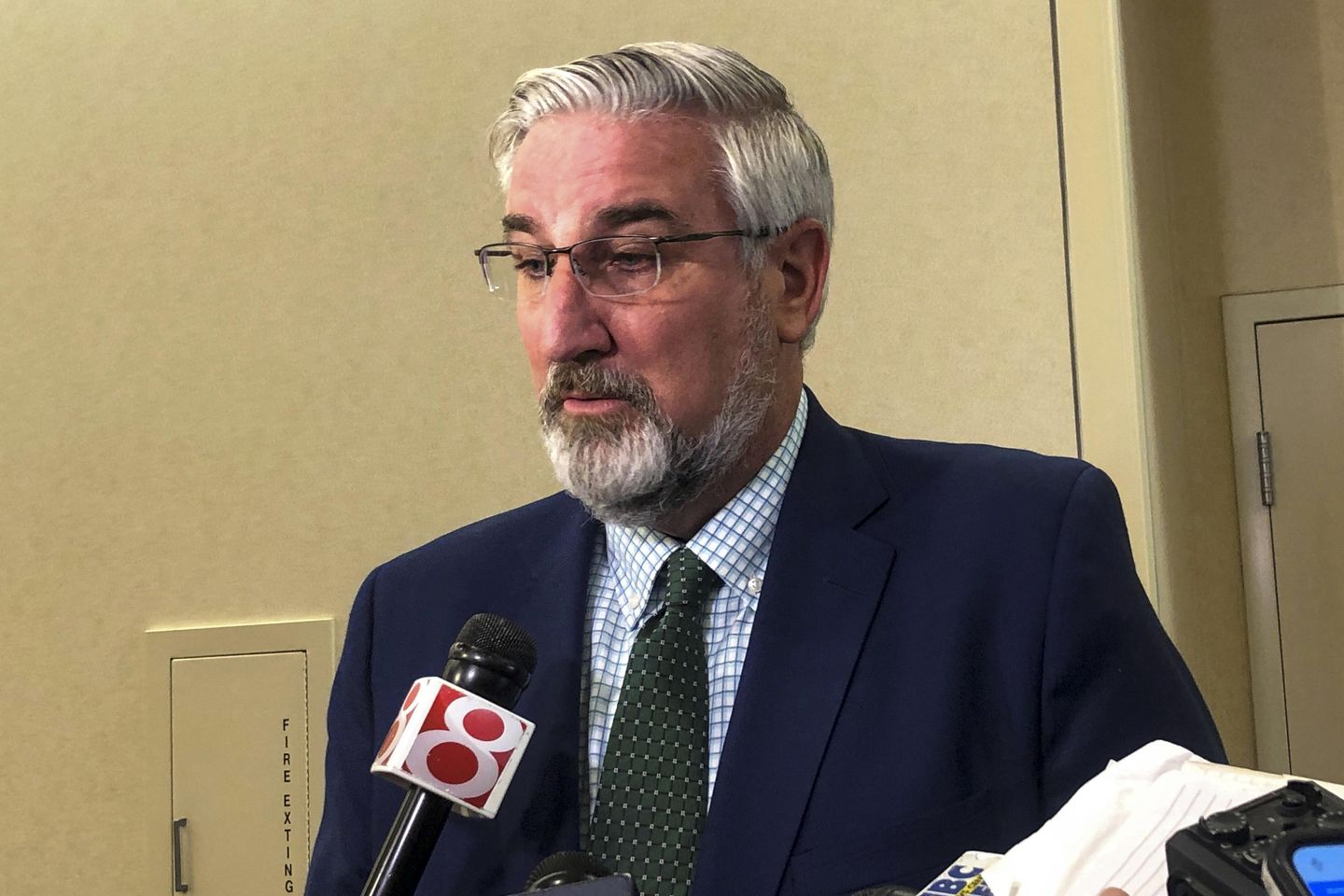

Indiana Gov. Eric J. Holcomb became the latest U.S. political figure to make a high-profile trip to Taiwan, as tensions between the U.S. and China over the island democracy’s status continue to soar.
Mr. Holcomb‘s two-day stay in Taiwan is part of an economic development trip that will include a visit to South Korea.
Mr. Holcomb‘s office said he will be the first U.S. governor to visit the island since the COVID-19 outbreak of late 2019 and the first Indiana governor to travel to Taiwan in nearly two decades.
His delegation’s visit comes on the heels of two high-profile U.S. congressional visits to Taipei, including a stop by House Speaker Nancy Pelosi earlier this month that incensed Beijing and led to a series of unprecedented military maneuvers and missile launches in the waters around Taiwan.
Chinese President Xi Jinping has vowed to bring Taiwan under mainland control and Chinese officials say recent moves by the Trump and Biden administration have violated the longstanding “One China” policy governing U.S. relations with Taipei.
The Biden administration last week announced plans to begin formal talks on a new trade agreement with Taiwan, further angering the Chinese.
SEE ALSO: Russia hawks blame Ukraine for car bomb that killed Putin adviser’s daughter
But U.S. Ambassador to China Nicholas Burns, in an interview Friday aired in China, again accused Beijing of “overreacting” to the recent visits by Mrs. Pelosi and others and of “manufacturing a crisis” when official U.S. policy regarding Taiwan has not changed.
Taiwan‘s Ministry of Foreign Affairs said Sunday that Mr. Holcomb‘s team plans to sign a memorandum of understanding with Taiwanese officials to boost business, trade and scientific cooperation.
The Indiana delegation includes state development officials, private business groups and the dean of Purdue University’s engineering college.
The Republican governor’s trip will include a meeting with Taiwanese President Tsai Ing-wen, a particular target of Chinese anger as her ruling party is seen as strongly leaning toward eventual independence for the self-governing island.
Mr. Holcomb‘s office in a statement noted that 10 Taiwanese firms are among the more than 1,000 foreign-owned enterprises operating in the state.
MediaTek, a major Taiwanese semiconductor chip manufacturer which recently announced a major production deal with Intel, revealed Aug. 1 it was creating a new chip design center in conjunction with Purdue in West Lafayette, Indiana.
China does not appear mollified by U.S. claims that American policy has not changed. An angry editorial in the official Xinhua news wire service Sunday called Mrs. Pelosi’s visit a “blatant provocation” and defended the strong military response to her trip.
“Some U.S. politicians are blatantly taking risks on the Taiwan question, and their ugly face of making constant trouble has once again made the international community clearly aware that the post-war international order and basic norms governing international relations are being threatened and challenged,” the editorial warned. “China‘s countermeasures are not only defending its core national interests, but also vigorously safeguarding the principle of non-interference in other countries’ internal affairs, international law and regional peace.”
